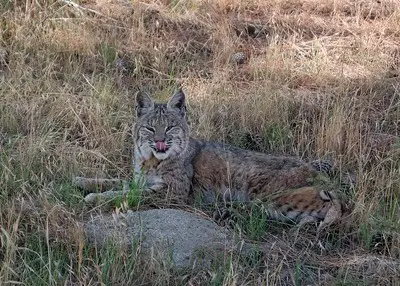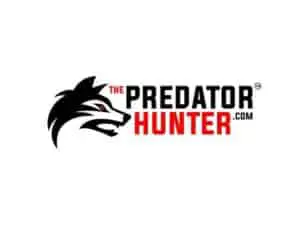If you are interested in bobcat hunting in Kansas there a few laws and regulations you need to know. Kansas has lots of bobcats and usually ranks among the top five for predators culled each year. It also has plenty of public land for those who need access to more properties. Please, make sure you check for updates and changes to the law. This article is for informational purposes only—it is not legal advice.

In Kansas, the statewide bobcat hunting season runs from November 18, 2022-Feb. 15, 2023. A furharvester license is required. Night hunting is allowed; however, no artificial lights are permitted.
NOTE: All furbearer hunting, trapping, and running seasons now begin at 12:01 a.m. on opening day and close at midnight of closing day.
To purchase a Kansas hunting license click here.
Check out the Kansas hunting seasons.
Related: Learn three vital tips for hunting bobcats here.
Related: Check out this article on the laws for hunting coyotes in Kansas.
Related: Learn the laws for hunting fox in Kansas.
General rules for bobcat hunting in Kansas.
Kansas fur harvester requirements.
FURHARVESTER EDUCATION CERTIFICATION
Persons born on or after July 1, 1966, must complete a furharvester education course approved by KDWP to purchase a furharvester license to hunt, run, or trap furbearers or trap coyotes on lands other than their own. Course information: (620) 672-5911 or ksoutdoors.com.
FURHARVESTER LICENSE
A furharvester license is required to hunt, trap, or pursue (run) furbearing animals, or to sell their pelts. A furharvester license is required to trap coyotes, and a hunting license is required to hunt them. The same license required to take coyotes is required to sell their pelts.
Unlicensed, non-participating observers may accompany a licensed furharvester but may not carry or use equipment, control dogs, or otherwise assist with furharvesting activities.
Residents 15 and younger may purchase a junior furharvester license at a reduced price. Youth 13 and younger accompanied by a licensed furharvester are exempt.
Pelt sealing is required.
Bobcat pelts sold, purchased, traded, transported, or shipped out of state must have a pelt tag (CITES) attached. A pelt tag must be attached before being transported or shipped out of this state.
PELT TAGGING
Bobcats, otters, and swift foxes must be presented to KDWP staff for tagging within seven days of the seasons’ end. It is recommended that pelt tags be kept with mounted specimens.
Suppressors. Legal and may be used for hunting.
Electronic callers. Mouth, hand, and electronic calling devices are legal in Kansas for bobcat hunting.
Check prices on Amazon for predator callers here.
Decoys. Allowed for bobcat calling.
Is it legal to hunt bobcats in Kansas at night?
Bobcat hunting at night is legal. If hunting at night, please get in touch with your local game warden as a courtesy.
Electronic callers. All mouth, hand, and electronic callers are legal to use when hunting bobcats in Kansas.
Lights, night vision, infrared, and thermal riflescopes. Use of these devices is illegal for bobcat hunting in Kansas.
Bobcat hunting costs in Kansas.
Prices for a guided bobcat hunt in Kansas will vary according to the accommodations, number of hunters, and other factors. The average price range runs from $500 to $1,200.
The guide services below offer updated and online pricing. Please note: These companies have no relationship to Thepredatorhunter.com.
Nonresident permit needed for bobcat hunting in Kansas.
BOBCAT PERMIT (NONRESIDENT)
Season (statewide):
November 18, 2021-Feb. 15, 2022.
Permit Limit: One bobcat per permit.
Methods Of Take:
Firearm (except fully automatic) and archery equipment.
Trapping is not allowed with this permit. Shooting Hours: One-half hour before sunrise to one-half hour after sunset.
Tagging: Carcass tags must be filled out and attached at the site of kill. Export tags must be obtained from KDWP within seven days of bobcat harvest.
Is it legal to kill a bobcat in Kansas that is destroying property or livestock?
Outside of the legal bobcat hunting season and without a proper permit, no. You should contact your local animal control officer for more information.
Related: Is it a bobcat bothering your chickens? Learn how to identify bobcat sign here.
See the complete regulations for bobcat hunting in Kansas here.


